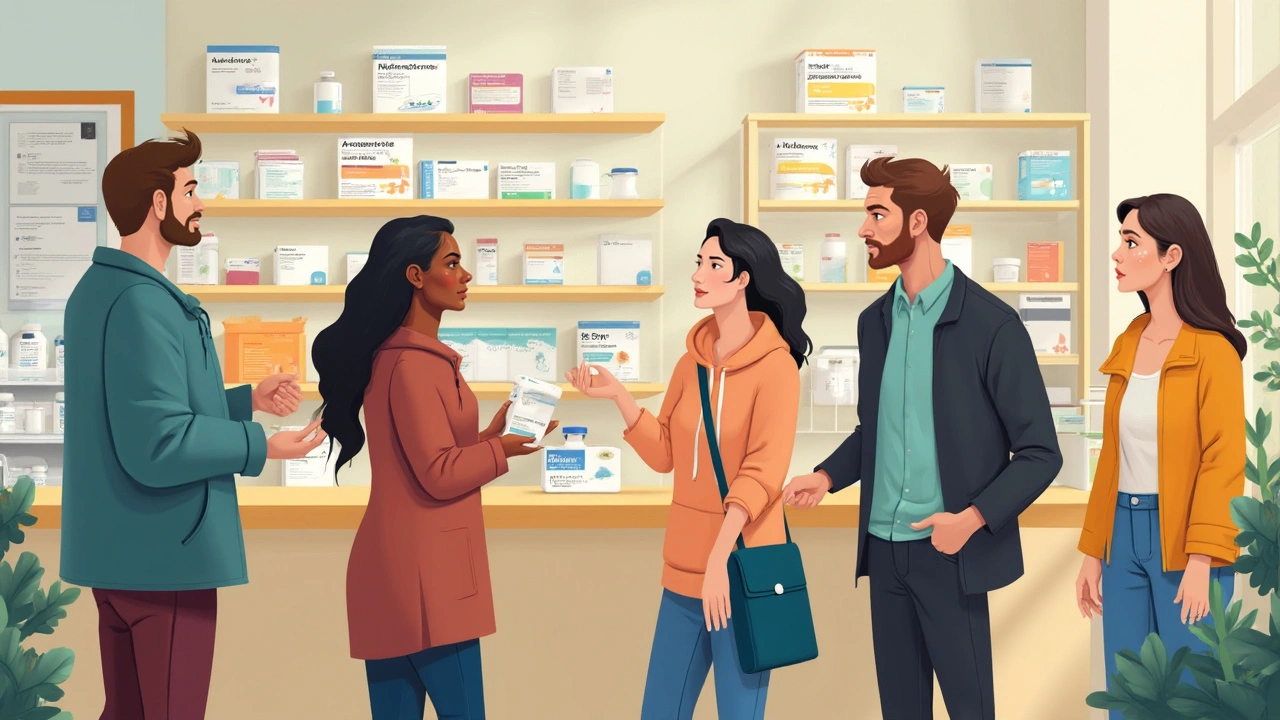Alcohol and Medications: What You Need to Know
Mixing alcohol with medication is more common than you think—and it can be dangerous. Some interactions only make you sleepy. Others can cause severe sickness, bleeding, or life-threatening problems. This page gives straight, practical tips so you can stay safe and still enjoy social life when it’s safe to do so.
Which medicines are risky with alcohol
Certain drug groups cause big problems when mixed with alcohol. Know these categories and check any pill you take:
- Opioids and strong pain relievers (hydromorphone, oxycodone): mixing can slow breathing and lead to overdose.
- Muscle relaxants and sedatives (tizanidine/Zanaflex, benzodiazepines): alcohol adds sedation and dizziness, raising fall risk.
- Antidepressants (venlafaxine/Effexor, SSRIs like fluoxetine): alcohol can worsen side effects and reduce effectiveness.
- Metronidazole (Flagyl) and similar drugs: can cause flushing, nausea, and rapid heartbeat when combined with alcohol.
- NSAIDs (celecoxib/Celebrex, ibuprofen): alcohol increases bleeding and stomach ulcer risk.
- Anticoagulants (warfarin and others): alcohol can change how blood thinners work and raise bleeding risk.
- Some herbal and OTC supplements (like red yeast rice or sedative herbs): these can interact unexpectedly with alcohol.
Not every drug is listed here. If you’re on prescription or regular OTC meds, treat alcohol with caution until you check.
Practical safety tips
Follow these simple steps to avoid trouble:
- Read the label. Warnings about alcohol are usually listed—don’t skip them.
- Ask your pharmacist or doctor. If you’re unsure, a quick call or message clears it up fast.
- Wait before drinking. Some drugs require a gap (hours to days) after stopping before alcohol is safe.
- Start low and slow. If your provider says occasional drinking is okay, try a small amount first and watch how you feel.
- Never mix with sedatives or strong pain meds. Even small amounts of alcohol can make breathing dangerously slow.
- Know warning signs. Severe drowsiness, confusion, difficulty breathing, fainting, heavy vomiting, or blackouts mean get help now.
If you think you or someone else has a bad reaction, call emergency services or your local poison control. Keeping a list of your medicines—including OTC drugs and supplements—makes it easier to get fast, correct help.
Bottom line: alcohol doesn’t mix safely with all medicines. Be curious, ask questions, and if in doubt don’t drink. A quick check with a pharmacist can prevent serious harm and keep your treatment working as it should.

